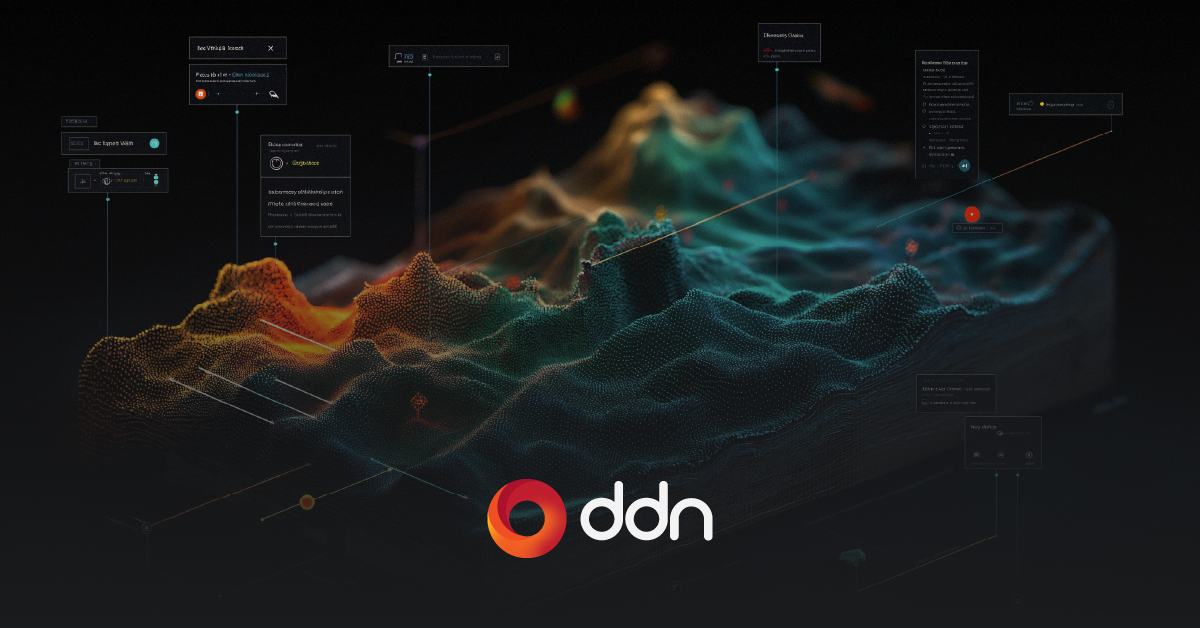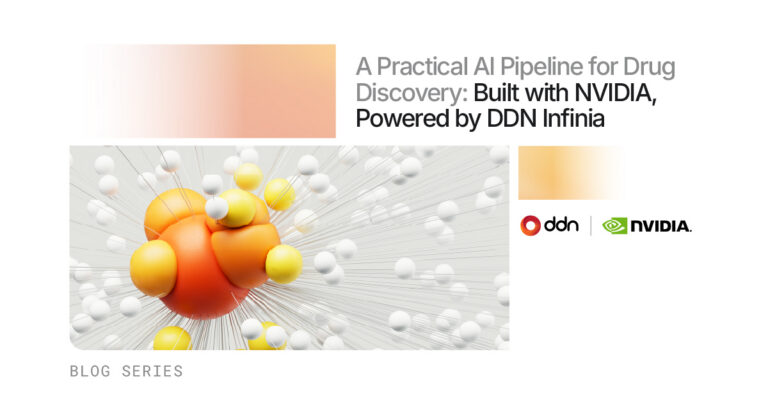By Moiz Kohari, VP of Enterprise & Cloud Programs
Over the past two years, object storage has gone from a backend concern to a board level priority. As Generative AI pipelines now ingest petabytes of unstructured data weekly, and regulators demand real-time access to immutable records, the modern CIO carries a deceptively simple mandate:
Keep every bit.
Mine it in real time.
Do it without blowing up the P&L.
That’s why today’s tech executives are rethinking what object storage should be—not just in terms of capacity, but in the context of AI infrastructure, metadata velocity, and data lifecycle management.
The Rise of the Data Ocean
Most enterprises default to the S3 API because it is the de facto standard for unstructured data. But APIs alone don’t solve the tough problems:
- Data gravity and cloud egress costs
- Latency bottlenecks in GPU pipelines
- Governance and security across hybrid environments
This is where DDN Infinia changes the game by enabling a Data Ocean – not just a data lake or isolated storage buckets.
The Data Ocean enables applications that leverage Infinia to access data in any hyperscaler cloud or on-prem without needing to move the data to one single cluster. This means no data movement is necessary for AI applications to extract value from the enterprise’s dispersed data which is often in many different places like a HDFS cluster, in the cloud, or on-prem in a S3 environment
Instead of shuttling petabytes between internal arrays, AWS S3 buckets, and Google Cloud Storage, Infinia presents a single global namespace. Its policy engine allows applications to process data exactly where it already resides—across core, cloud, and edge.
No rewrites. No risky copies. One unified surface.
What is a Data Ocean?
A Data Ocean unifies globally distributed unstructured data under one policy-driven, high-performance infrastructure. Unlike traditional data lakes or lakehouses, it eliminates silos, supports real-time operations, and scales with AI workloads.
Why Infinia Defines Modern AI Object Storage
A Data Ocean, not a Data Swamp
1. Performance Without Forklift Upgrades
- Single-threaded listings: 80K+ objects/sec
- Parallel queries: 600K+ objects/sec
- Result: AI inference and compliance scans collapse from hours to minutes with value starts on day one as data migration is not necessary
- Outpaces even S3 Express, with lower latency and no single-AZ limitation
2. AI Metadata at Machine Speed
LLM pipelines, fraud detection, and RAG (Retrieval-Augmented Generation) all choke on slow listings, not bandwidth. Infinia auto-indexes every object with a distributed key-value engine, enabling:
- Billions of keys scanned in real time
- Sub-second context retrieval for GPU pipelines
- End-to-end metadata management that powers modern AI
3. Data Unification at Scale
- One Data Ocean that spans on-prem, hybrid, and multi-cloud
- Native support across AWS and GCS, no gateways or proxies
- Real-time locality resolution for AI, analytics, and risk workflows
- Centralized IAM, security, and data lifecycle policies
Compare this to a Data Lakehouse, which integrates BI and analytics, but often lacks the distributed flexibility and AI-centric performance of a true Data Ocean.
4. Enterprise-Class Economics
- Public cloud egress fees: $0.09/GB = $90/TB
- Multi-hop workloads: $900+/TB
- A mid-sized Infinia deployment? Less than half the cost annually
- Plus: Native data tiering for low-cost archival without losing visibility
5. Sustainability + Density
- Flash-first nodes pack 100PB per rack
- Lower energy, cooling, and rackspace footprint
- Better watts-per-PB for organizations chasing net-zero targets
The Boardroom Playbook: C-Level Guidance
Here’s how technology executives are aligning object storage strategy with AI readiness, risk management, and financial control:
1. Map Workloads to Latency Budgets
Millisecond-sensitive workloads? Land them on a co-located Infinia pod. Cold data? Let policy-based tiering push it to cloud buckets—still visible and queryable.
2. Quantify the Gravity Tax
Transferring 5PB quarterly out of public cloud = $1.8M/year. Infinia removes the meter and keeps AI infrastructure in your control.
3. Prioritize Metadata Speed
Storage isn’t just about IOPS anymore—it’s about answers per second. Infinia delivers six-figure object listing rates and powers real-time AI metadata retrieval.
4. Demand One Namespace Across Everything
Hybrid is the default, not the exception. The Data Ocean means consistent IAM and governance from edge to hyperscaler.
5. Bake In Security From Day One
Infinia ships with:
- Immutability
- Zero-trust APIs
- Multi-tenant QoS
- Ransomware rollback without a services contract
Closing Thought: Choose Storage That Moves at the Speed of AI
Storage was once infrastructure. Today, it’s the throttle on AI innovation, regulatory responsiveness, and business agility.
The market is full of reputable object storage engines. But only DDN Infinia delivers:
- A true Data Ocean
- Sub-millisecond latency
- GPU-optimized metadata performance
- Seamless cloud-native integration
- And business-class economics built for scale
When storage fades into the background and decisions accelerate—that’s when AI infrastructure delivers.
Learn more about DDN Infinia and how it can transform your AI infrastructure. Contact us today to talk to an AI specialist.
A Data Ocean unifies globally distributed unstructured data under one policy-driven, high-performance infrastructure. Unlike traditional data lakes or lakehouses, it eliminates silos, supports real-time operations, and scales with AI workloads.
DDN Infinia auto-indexes every object with a distributed key-value engine, enabling billions of keys to be scanned in real time and sub-second context retrieval for GPU pipelines.
DDN Infinia offers lower public cloud egress fees, reduced multi-hop workload costs, and native data tiering for low-cost archival without losing visibility.



